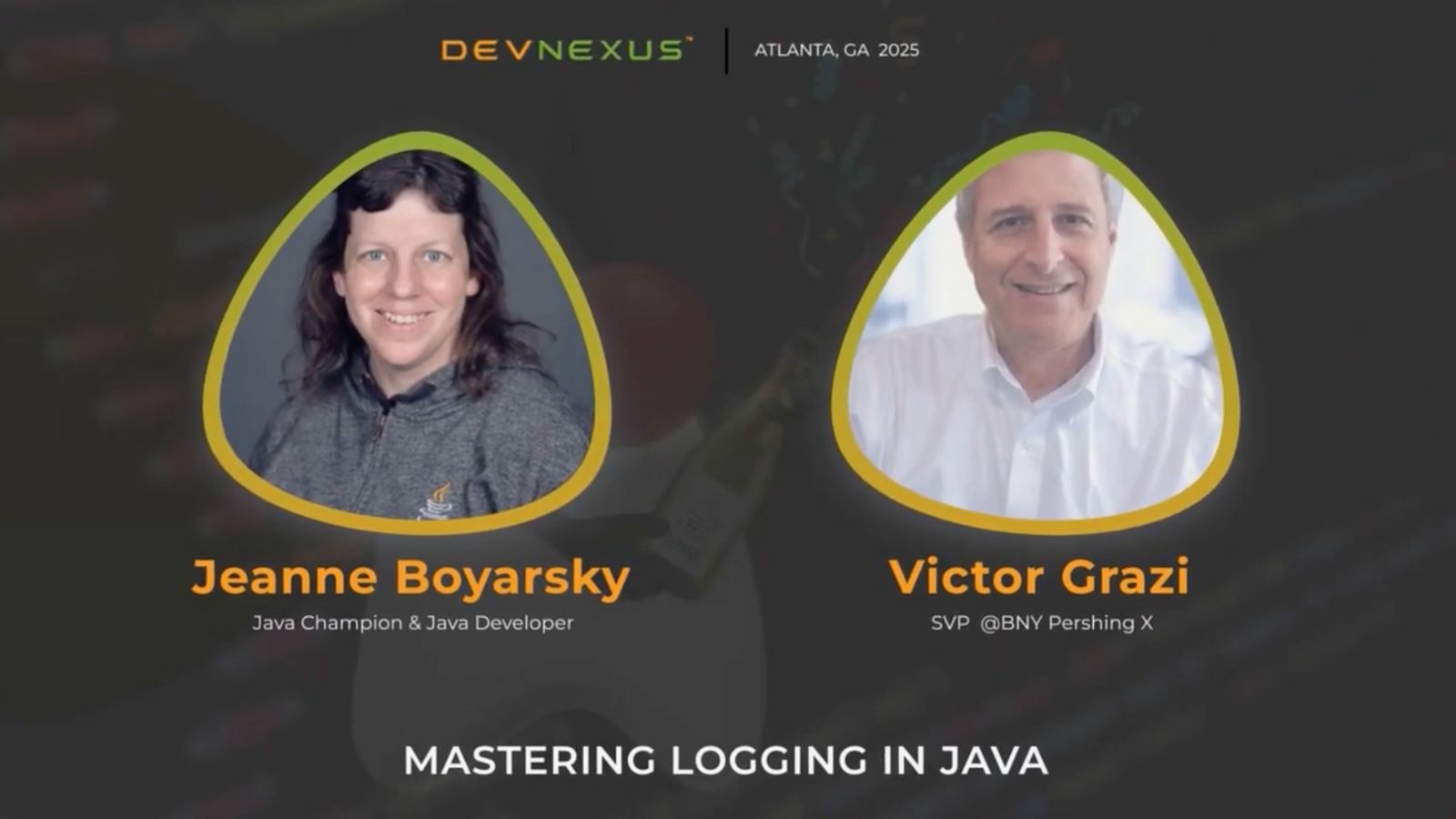Mastering Logging in Java with Jeanne Boyarsky and Victor Grazi

In their Devnexus session, “Mastering Logging in Java,” authors and Java experts Jeanne Boyarsky and Victor Grazi tackled one of the most underappreciated yet mission-critical aspects of modern software development: logging. As Grazi noted, while System.out.println may have been sufficient for hobby projects or quick debugging, it simply doesn’t scale in enterprise environments. Modern Java applications—especially those distributed across containers and microservices—require intelligent, flexible logging strategies that deliver insights without introducing noise or performance overhead. Logging must adapt seamlessly across environments (from verbose DEBUG logs in development to lean INFO logs in production), integrate with DevOps pipelines, and support advanced infrastructure features like log rotation, auditing, and aggregation.
To help developers navigate the complex Java logging ecosystem, Boyarsky provided a guided tour of the major frameworks—Java Util Logging (JUL), Log4j, SLF4J, and Logback—clarifying their strengths and trade-offs. JUL, she explained, comes bundled with the JDK and offers simplicity but limited power. In contrast, Log4j and Logback offer rich configuration and performance advantages but require additional dependencies. The key takeaway was clear: developers should always code against a logging facade, such as SLF4J, rather than directly tying their application to a single framework. This abstraction layer decouples business logic from the underlying logging implementation, making it easy to switch frameworks or evolve configurations without rewriting code. Boyarsky also issued a vital reminder about security—particularly around Log4j’s historical vulnerabilities—urging all developers to ensure they are running version 2.17.2 or higher to stay protected.
In the final section, the session looked ahead to the future of logging in cloud-native and AI-driven environments. Grazi highlighted the need for distributed logging solutions such as the ELK Stack, Splunk, and Loki (integrated with Prometheus and Grafana) that can aggregate and visualize logs across sprawling microservice architectures. These platforms enable unified observability and faster root-cause analysis. For an immediate productivity boost, he recommended adopting Micrometer Tracing, which automatically attaches trace IDs to requests that traverse multiple services—making debugging significantly more efficient. Boyarsky concluded the session by exploring how AI tools like ChatGPT are beginning to assist developers in parsing complex logs, detecting anomalies, and even predicting potential failures before they impact users. This convergence of AI and observability, she noted, marks the next frontier for intelligent logging systems.
Ultimately, the message for developers was clear: effective logging is not just about writing lines to a file—it’s about understanding your systems. By embracing modern frameworks, facades, and intelligent tracing, developers can turn logs into actionable insights that drive reliability, resilience, and smarter automation.
🎥 Watch the Full Session
🚀 Join Us at Devnexus 2026
Continue learning from Java experts, innovators, and community leaders. Join us next year at Devnexus 2026 to explore more hands-on sessions, practical insights, and the latest advances shaping the future of Java development.



